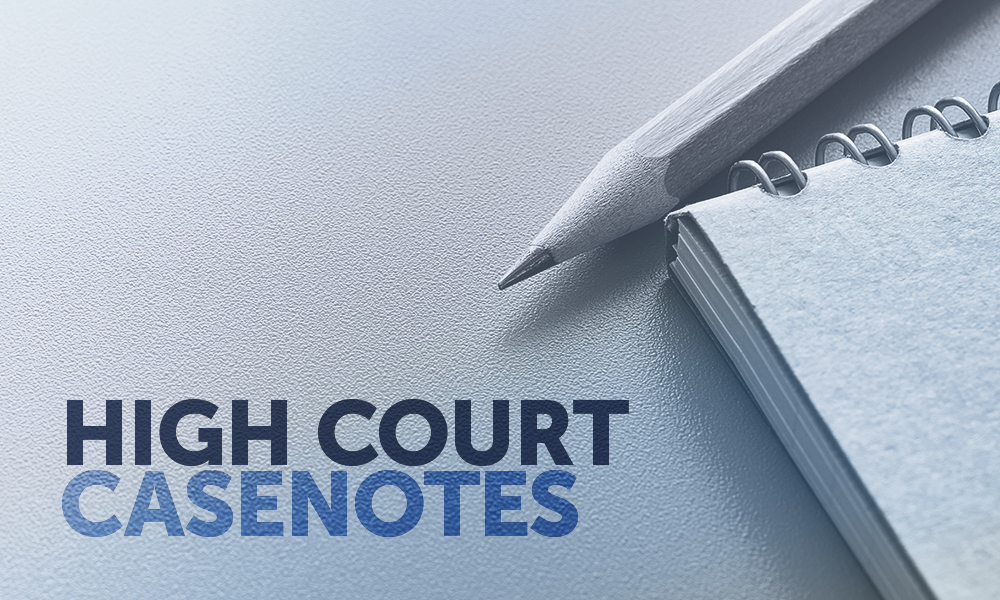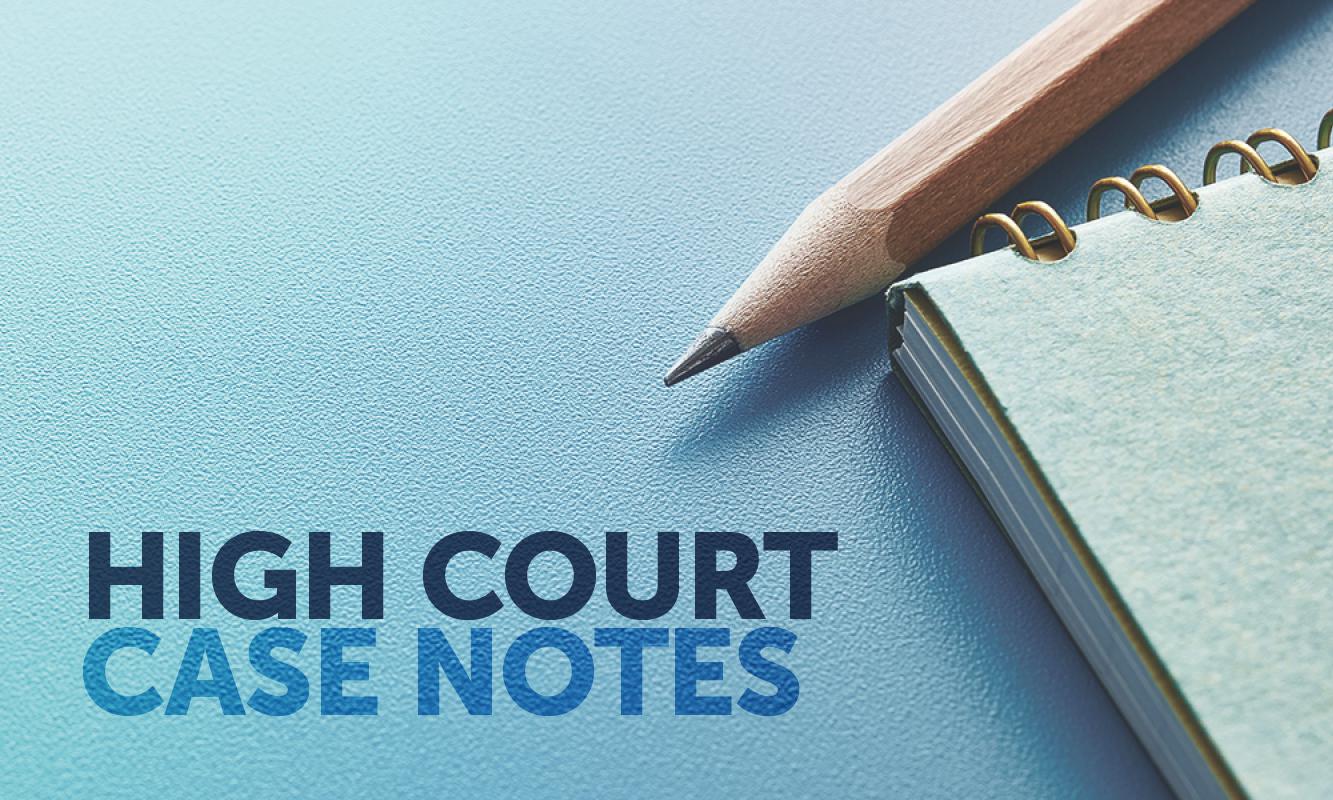In QYFM v Minister for Immigration, Citizenship, Migrant Services and Multicultural Affairs & Anor [2023] HCA 15 (17 May 2023), the High Court was required to consider whether a judge (Bromwich J), sitting as part of the Full Court of the Federal Court, should have recused himself from the hearing of an appeal by reason of a reasonable apprehension of bias.
In addressing this question, the High Court also addressed the ancillary question of whether the Full Court, and not Bromwich J alone, should have determined the appellant’s application that Bromwich J recuse himself.
The appellant is a citizen of Burkina Faso. In 2013 the appellant was convicted of a drug importation offence and sentenced to imprisonment for a term of 10 years, with a non-parole period of seven years. The appellant unsuccessfully appealed against his conviction (conviction appeal).
Before his elevation to the bench, Bromwich J was a senior barrister who occupied the position of the Commonwealth Director of Public Prosecutions. While in this position, Bromwich J appeared for the Crown in the conviction appeal.
In 2017 a delegate of the Minister decided to – pursuant to s501(3A) of the Migration Act 1958 (Cth) – cancel the appellant’s visa, on the basis the appellant did not pass the ‘character test’ by reason of the sentence of imprisonment.
In 2019 another delegate of the Minister decided not to revoke the cancellation of the appellant’s visa. The appellant sought a review of the decision by the Administrative Appeals Tribunal (AAT) – the AAT affirmed the decision.
The appellant then applied for a judicial review of the AAT’s decision and was unsuccessful before a single judge of the Federal Court. The appellant then appealed to the Full Court, constituted by McKerracher, Griffiths and Bromwich JJ (visa appeal).
Shortly before the hearing of the visa appeal, Bromwich J’s associate sent an email to the legal representatives of the parties to advise them he had appeared for the Crown in the conviction appeal. Further, that his Honour did not consider this circumstance gave rise to an apprehension of bias.
At the commencement of the hearing of the visa appeal, the appellant’s counsel made an oral application for Bromwich J to recuse himself. After a short adjournment, Kerracher J invited Bromwich J to deal with the application. Bromwich J declined to recuse himself and gave reasons for his decision. Kerracher J then invited the appellant’s counsel to continue and the hearing of the visa appeal resumed.
The Full Court later delivered its decision dismissing the visa appeal. The joint reasons for judgment, published by McKerracher and Griffiths JJ, did not address the oral application (made at the hearing) that Bromwich J recuse himself.
In separate reasons for judgment, Bromwich J agreed with McKerracher and Griffiths JJ and went on to restate his reasons for refusing to recuse himself.
The appellant appealed to the High Court. The High Court (Steward and Gleeson JJ dissenting) allowed the appeal. All of the High Court justices (with the exception of Kiefel CJ and Gageler J) set out their reasons in single judgments.
As to the first question (whether there was a reasonable apprehension of bias), after a careful application of the principles enunciated in Ebner v Official Trustee in Bankruptcy (2000) 205 CLR 337, the High Court concluded there was an apprehension of bias.
The High Court considered a fair-minded observer might reasonably apprehend that a judge, who had been involved as an advocate in the prosecution of an individual in the past, might not bring an impartial mind to the issues to be determined – especially where that prosecution is connected with the case before the court: Kiefel CJ and Gageler J at [55], Gordon J at [82]-[83], Edelman J at [175] and Jagot J at [299].
Steward J, at [214]-[215], and Gleeson, at [267], considered it was very unlikely that a fair-minded lay observer would consider a judge’s participation in the conviction appeal to – on its own – undermine his neutrality in the visa appeal.
As to the second question (whether the Full Court should have determined the appellant’s application that Bromwich J recuse himself), the High Court was divided on who, and how, the application should have been determined.
Kiefel CJ and Gageler J, at [27]-[29] and [35], considered that the Full Court had an institutional responsibility to determine the application (being a challenge to its jurisdiction).
Gordon J, at [94], considered that the proper course is for the judge in question to initially determine whether they ought to recuse themselves and, only if the judge does not recuse themselves and the objection is maintained, does the Full Court, as a whole, need to determine the issue.
Steward J, at [193], expressly agreed with Gordon J’s position. Edelman J also reached a similar position to Gordon J at [133] and [152]. Jagot J, at [314], considered that the application could only be determined by the judge in question. Gleeson J, at [271], declined to express a view.
Finally, if there is any law enthusiast out there searching for the perfect quote to adorn a t-shirt or tea towel, I recommend the final line of Edelman J’s judgment at [192]: “The appearance of justice is good. Actual justice is better. Both is best of all.”
Dr Michelle Sharpe is a Victorian barrister practising in general commercial, real property, disciplinary and regulatory law, 03 9225 8722, email msharpe@vicbar.com.au. The full version of these judgments can be found at austlii.edu.au.














Share this article